news
The significance of Tinubu’s first one week of 2024, – Tunde Rahman
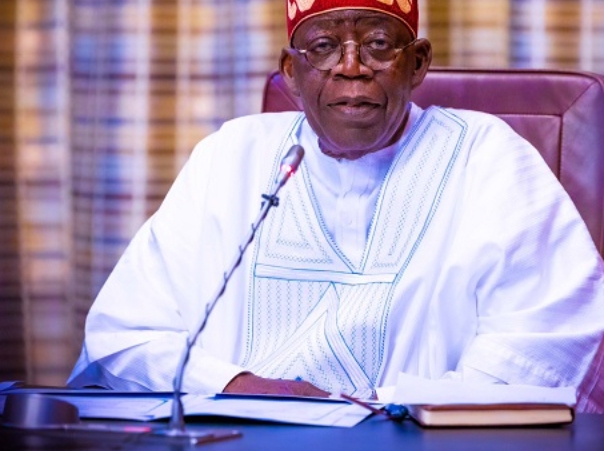
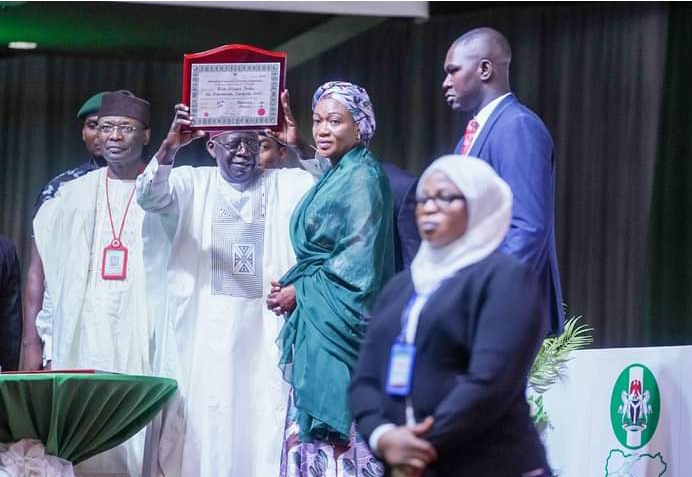 There couldn’t have been a better predictor of what to expect from President Bola Tinubu in 2024 than the way and manner he began the New Year. For the President, 2024 started on a business like, work-filled note. While many were still savouring the New Year, the Nigerian leader cut short his Christmas/New Year holiday in Lagos, on January 1, hurriedly returned to Abuja and put his signature to the N28.7 trillion 2024 Appropriation Bill passed by the National Assembly. It was his first assignment in the New Year and the way he did it demonstrated the seriousness and patriotic commitment he brings unto the exalted job.
There couldn’t have been a better predictor of what to expect from President Bola Tinubu in 2024 than the way and manner he began the New Year. For the President, 2024 started on a business like, work-filled note. While many were still savouring the New Year, the Nigerian leader cut short his Christmas/New Year holiday in Lagos, on January 1, hurriedly returned to Abuja and put his signature to the N28.7 trillion 2024 Appropriation Bill passed by the National Assembly. It was his first assignment in the New Year and the way he did it demonstrated the seriousness and patriotic commitment he brings unto the exalted job.
For him, nothing must stand on the way of the onerous responsibility bestowed on him. Senate President, Godswill Akpabio and House of Representatives Speaker, Tajudeen Abbas were shocked to learn the President had returned to Abuja and ready to sign the budget.
Since that first day of the year, it has been one impactful governance step and important decision after another. Indeed, it was one week of 2024 to remember. It reminds me of a song by Canadian rock band, Barenaked Ladies with the same title “One Week”. The song was released as the first single from their 1998 album, Stun. The song is unique for its significant number of pop culture references, and remains the band’s best-known song. According to Wikipedia, when the song reached No. 1 on the US Billboard Hot 100.
In One week of 2024 to remember, President Tinubu made pivotal and landmark decisions, which have been widely applauded.
Critic-turned-admirer of President Tinubu, Reno Omokri, catalogued some of these important decisions and developments in a tweet recently.
The decisions include the suspension of the Minister of Humanitarian Affairs and Poverty Alleviation, Dr. Beta Edu, and Coordinator of the National Social Investment Programme Agency, Hajiya Halimotu Shehu, for alleged financial transgressions and the ongoing investigation by the Economic and Financial Crimes Commission to determine their guilt; the summon by the President of another minister alleged to be involved in a controversial contract; the drastic reduction in the entourage of the President’s domestic and international travels; the banning of the money-for-degree universities in Benin Republic, Togo and other countries;, and the clearing of the N12billion outstanding allowances and other arrears for the Super Eagles, taking part in the African Cup of Nations tournament beginning this weekend. Arrears owed other national teams were also paid by the President..
In that preceding week, the Bola Tinubu administration embarked on the payment of wage support benefits to civil servants, the disbursement of N105.5 billion for 266 road repairs, the launch of the automated passport portal and the unfolding of plans to build a new Chinese-funded plant in Nigeria following on the heel of a visit to China by the Minister of Steel Development, Shuaib Abubakar Audu.
The swift suspension of Betta Edu, one of the visible ministers at present, pending the full investigation of the alleged scandal in the ministry not only demonstrates there are no scared cows in the anti-graft crusade, it will also serve as deterrent against others who may otherwise believe the present government is business-as-usual.
However, as some have argued, the minister should not be pilloried until after the full investigation of the allegations against her can establish culpability.
Perhaps, the most exciting of the President’s decisions during that important week, in my view, is the resolve to cut the cost of governance by drastically reducing the number of people in his entourage on local and international trips. President Tinubu directed that the top government functionaries, dignitaries and aides on his travels be slashed by 60 per cent, more than half.
On local trips, the President, for instance, ordered that in the area of security, his team should rely more on the capacity of the security establishment and existing protocols in the host states.
It must be pointed out here that when the President visits a state for instance like his recent visit to Lagos during the Christmas/New Year holiday, during which he decided to observe the Jumat at the Central Mosque in Lagos Island, the long stretch of vehicles noticed in his convoy are not entirely his own. Some dignitaries in Lagos, top security officers, top traditional rulers, political associates and many others simply joined the entourage to the mosque at no prompting of the President.
The importance of cutting the number in the President’s travels apart from the concomitant reduction in total cost of the trip is unmistakable. First, it is in tandem with the demands of the present challenging times when prices of goods and services have skyrocketed owing to what many tie to the prevalent foreign exchange rate.
Second, by slashing the presidential entourage, President Tinubu has again demonstrated leadership by example. He has shown he fully understands what the people are experiencing at present and shares in their pains, which he says will be temporary, according to his New Year Day speech.
Indeed, the cost of governance and administration in Nigeria is high and it has become imperative to bring down this cost. Every possible avenue must be employed to do this. It is estimated that the country mostly spends over 75% of her federal budget on recurrent expenditure, leaving less than 25% for capital expenditure. The present administration is set to change this governance narrative. For instance, in the N28.7trillion 2024 budget, recurrent expenditure was pegged at N8.7tr and capital expenditure at N9.9tr. This trend is expected to continue going forward.
news
Renewed Hope : No governor can complain of lack of funds under Tinubu’s administration, Says Sanwo-Olu,
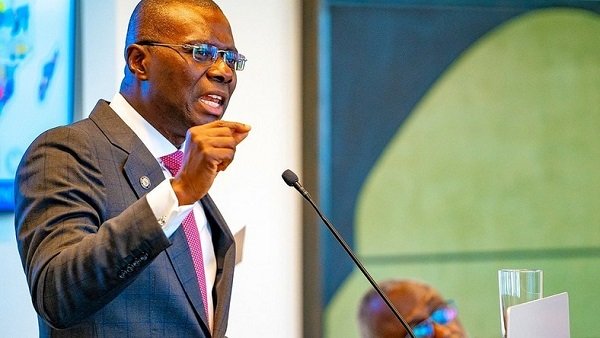
No
Lagos State Governor, Babajide Olusola Sanwo-Olu, has declared that under the administration of President Bola Ahmed Tinubu, no state governor or local government chairman can genuinely complain of a lack of funds.
He said the Tinubu administration has significantly increased allocations to subnational governments, ensuring that states and local councils have more resources to meet their developmental obligations.
Sanwo-Olu stated this on Tuesday, November 11, while delivering the keynote address at a one-day public lecture organized by the Arewa Think Tank (ATT) to commemorate Nigeria’s 65th Independence anniversary at the Arewa House, Kaduna.
The lecture, themed “65 Years of Nigeria’s Independence: The Journey So Far with the Renewed Hope Agenda in View,” brought together political leaders, academics, youth groups, and other stakeholders to reflect on Nigeria’s national progress and future under President Tinubu’s Renewed Hope Agenda.
The Lagos Governor praised the resilience and ingenuity of Nigerians since independence, noting that despite the country’s challenges, its capacity for growth, reform, and unity remains unmatched.
“Today, that story has changed. Ask any State Governor or Local Government Chairman, and they will tell you just how much revenue has surged under the watch of President Bola Ahmed Tinubu. There is now more money to do more that benefits the people of Nigeria,” Sanwo-Olu said.
He attributed the improved fiscal outlook to deliberate policy reforms by the Tinubu administration, particularly those designed to strengthen federalism and empower the states and local governments.
According to him, between 2023 and 2024, federal allocations to state governments rose by about 62 percent, while allocations to local governments increased by 47 percent. He said the recently enacted tax reforms, which reduced the Federal Government’s share of Value Added Tax (VAT) from 15 percent to 10 percent, further underscored the President’s commitment to fiscal decentralization and grassroots development.
“With the new tax laws, states now get 55 percent of VAT, while local governments receive 35 percent. This is another bold step by the President to ensure that governance is closer to the people,” he noted.
Sanwo-Olu also lauded the President’s insistence on local government financial autonomy, recalling the administration’s Supreme Court victory, which secured historic legal backing for that autonomy.
He disclosed that President Tinubu’s next major reform focus is restructuring Nigeria’s security architecture through the creation of State Police, an initiative he described as “long overdue and fundamental.”
Citing Tinubu’s recent remarks during a meeting with Katsina leaders, Sanwo-Olu quoted: “I am reviewing all aspects of security. I have to create a State Police. We are looking at that holistically. We will defeat insecurity.”
He described the Renewed Hope Agenda as a bridge-building framework aimed at uniting Nigeria’s diverse regions through equity, reform, and inclusive development.
“President Tinubu is a veteran unifier and a bridge-builder. His Renewed Hope Agenda is about connecting Nigeria, bridges of reform, prosperity, and national unity,” he said.
Drawing inspiration from Nigeria’s founding fathers, especially the late Sir Ahmadu Bello, the Sardauna of Sokoto, Sanwo-Olu emphasized that true national development must be homegrown and context-specific.
“More than six decades later, Sardauna’s words still ring true. Our duty is to build on those legacies, planting trees we may not sit under, but ensuring a better Nigeria for future generations,” he said.
He reaffirmed that Nigeria’s diversity remains its greatest strength, saying: “We will continue to affirm that Nigeria is a proudly multi-ethnic, multi-religious, and multicultural country. What binds us together is far stronger than what divides us. We shall overcome every challenge, poverty, hunger, and terrorism.”
Sanwo-Olu pledged Lagos State’s continued partnership with the Federal Government in actualizing the Renewed Hope Agenda and building a prosperous, inclusive, and resilient nation.
news
Organ Transplant Scandal : Tinubu engages UK, seeks Ekweremadu’s transfer to Nigeria
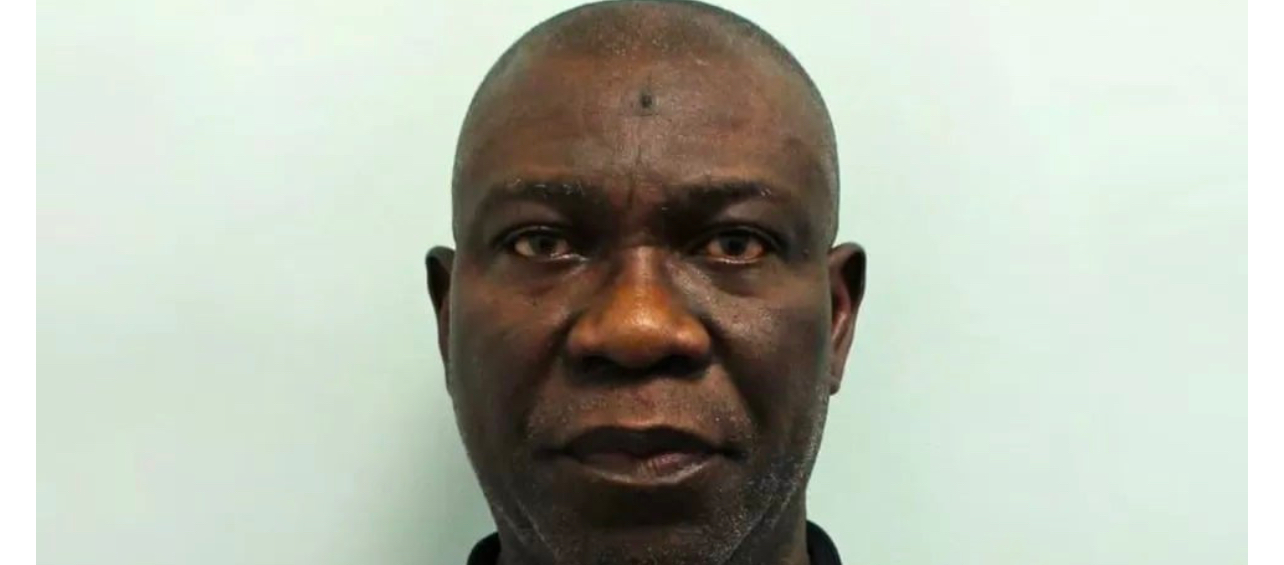
President Bola Tinubu has sent a high-level delegation to London to discuss the case of a former Deputy Senate President, Ike Ekweremadu, who has been serving a prison sentence in the United Kingdom since March 2023.
Newsthumb gathered that the Federal Government is actively seeking arrangements that would allow Ekweremadu to serve the remainder of his sentence in Nigeria.
The delegation, which included the Minister of Foreign Affairs, Yusuf Tuggar, and the Attorney General and Minister of Justice, Lateef Fagbemi, on Monday held discussions with officials at the UK Ministry of Justice regarding Ekweremadu’s incarceration.
Following the meeting, the team was received at the Nigerian High Commission in London by the Acting High Commissioner to the UK, Ambassador Mohammed Maidugu.
Confirming the development to Arise News on Monday night, the spokesman for the Foreign Affairs Minister, Alkasim AbdulKadir, said the consultations with UK authorities are ongoing.
He added that a formal request for a prisoner transfer to allow Ekweremadu to serve the remainder of his sentence in Nigeria has been submitted.
He said, “Consultations are still ongoing with UK authorities on the matter.
“An appeal for a prisoner exchange for him to serve the remainder of his term in Nigeria was tabled before the United Kingdom authorities.”
Our correspondence earlier reported that Ekweremadu and his wife were arrested by the London Metropolitan Police in June 2022, after a man was falsely presented to a private renal unit at Royal Free Hospital in London as a cousin to their daughter Sonia, in what turned out to be a failed attempt to persuade medics to carry out an £80,000 transplant.
Ike Ekweremadu was convicted in the UK for his role in organ trafficking after attempting to bring a 21-year-old Lagos street vendor to Britain for a kidney transplant intended for his daughter, Sonia.
The 21-year-old man, who was allegedly promised work in the UK, reported the matter to the police in May of the same year, stating that he was brought to the country for an organ transplant.
In March 2023, Ekweremadu was found guilty of organ trafficking by a UK court and was later, in May, sentenced to nine years and eight months under the UK Modern Slavery Act.
His wife, Beatrice, received a four-year and six-month sentence and was released early in 2025, while a medical intermediary, Dr Obinna Obeta, was handed a ten-year prison term.
However, in January, Beatrice was released from prison and returned to Nigeria.
The case drew widespread attention, sparking diplomatic discussions between Nigeria and the UK, exposing gaps in transplant regulations, and prompting further investigations in the UK.
news
Warri- Itakpe train derailment: Police parade suspects, CP Kwaimo, Says vandalism is an economic sabotage
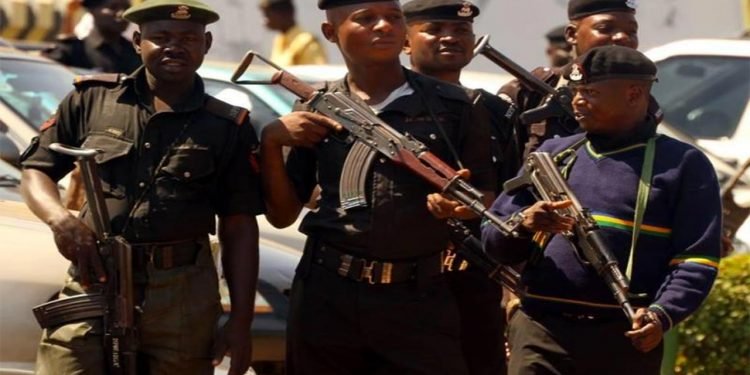
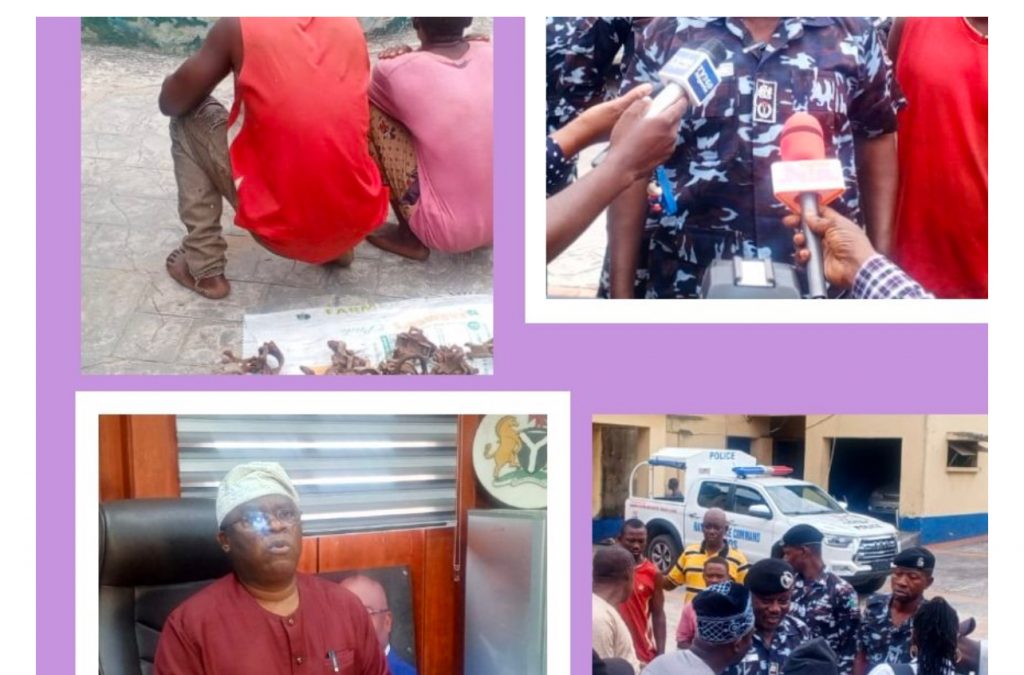
Warri- Itakpe train derailment: Police parade arrested suspects … this act of vandalism is an economic sabotage – CP Kwaimo
…… Railway properties are critical national assets and not scraps, we are going to deploy technology for rail tracks monitoring – Opeifa
The Railway Command of the Nigeria Police Force today Friday 7th November 2025 at it’s headquarters in Ebute Metta, Lagos, paraded the two suspects arrested in connection with the derailment of the Warri Itakpe train service on Sunday 1st of November 2025.
Speaking to newsmen, the Commissioner of Police Nigeria Police Railway Command, CP Vungmoh S.M. Kwaimo, described the vandalism of train tracks as an act of economic sabotage which will be fought to a standstill. According to CP Kwaimo, the suspects, identified as Mudansuru Mutari (male, aged 27) and Blorie Kokori (aged 39), were apprehended around Kilometer 208 before Abraka, Delta State, on Tuesday, November 4, 2025, by operatives of the NRC Police Command in collaboration with local security agents.
CP Kwaimo described the arrest as a breakthrough in the fight against train tracks vandalism in the Agbor Abraka axis. According to him, “We are going all out against the vandals because we have a responsibility to ensure safety of life and property in line with section 4 of the Police Act”.
According to the CP, preliminary investigations and their confessional statements revealed their direct involvement in tampering with vital components of the rail track. He said, “We will pursue this case to see that justice is served”. He also promised to go after the sponsors, some of whom have been identified in Lagos and Agbor.
The CP used the occasion to inform the public that the number of policemen attached to each coach in the operations of the Nigerian Railway is to be increased. He expressed gratitude to President Bola Tinubu, the Inspector General of police and the management team of the NRC for their support and zero tolerance for railway vandalism.
CP Vungmoh Kwaimo at the parade of the suspects was flanked by his officers and men which included DCP Yahaya Mana DC (CID), DCP Toyin O. Sulyman DC (OPS), ACP Ibrahim Audu AC (OPS), among others.
In a similar vein, the president general of the Nigerian Union of Railwaymen comrade Innocent Luka Ajiji who led members of his executive to the parade of the suspects, was full of praise for the new leadership of the Nigerian Railway police command under CP Kwaimo Vungmoh for their tireless efforts in the fight against rail tracks vandalism, just as he commended the management of NRC led by Dr Kayode Opeifa for the reinvigoration and turn around of the Nigerian Railway Corporation and railway men for their commitment to their duty even in the face of challenges and setbacks caused by train tracks vandalism.
Similarly, the managing director and chief executive officer of the NRC Dr Kayode Opeifa while speaking to newsmen in his office, called on states governments to show concern to take ownership of the railway tracks that passes through their states through the provision of infrastructures like motorable roads to the train stations.
Comrade Opeifa reiterated his warning that railway properties are critical national assets and not scraps, and warned vandals and their sponsors to stay away or face the full weight of the law. According to the NRC helmsman, “Railway properties are national assets, stay away, we are changing strategies to secure train tracks, We are deploying technology and the use of local communities to safe guard our train tracks”.
According to Dr Opeifa, “We are prosecuting many arrested vandals of train tracks and will not stop, unless they stay away from our national assets”.
Dr. Opeifa emphasized that the NRC under his leadership remains focused on President Bola Tinubu administration Renewed Hope Agenda and will not compromise in the provision of efficient service delivery and safety of it’s passengers whose comfort is non negotiable.
He identified funding as a major challenge in the operations of the NRC, but noted that the support of states governments remains critical, to enhancing quality and efficient service delivery to the people.
Comrade Opeifa said that the corporation was in talks with the Rural Electrification Agency to provide electricity to the stations and trains tracks to about 500 meters to the train stations. He also called on the members of the national assembly to consider the Nigerian Railway Corporation (NRC) in their constituency projects.
Speaking on the derailed Warri Itakpe train of the 1st of November 2025, Dr Opeifa stated that only two coaches were affected as a result of the removed bolts and clips. He highlighted that over 300 bolts and clips were removed within the axis which caused the derailment, but that the re-railment was concluded within 24 hours, but due to the need to carry out necessary and diligent safety checks, the resumption of train services had to be put on hold temporarily and that train service has resumed on the corridor.
Comrade Opeifa used the occasion of the press briefing to appreciate and commend the commuting public whose loyalty, according to him, “Strengthened our resolve to remain committed and undeterred by the derailment setbacks”.
-

 news5 years ago
news5 years agoUPDATE: #ENDSARS: CCTV footage of Lekki shootings intact – Says Sanwo – Olu
-

 lifestyle5 years ago
lifestyle5 years agoFormer Miss World: Mixed reactions trail Agbani Darego’s looks
-

 health5 years ago
health5 years agoChairman Agege LG, Ganiyu Egunjobi Receives Covid-19 Vaccines
-

 lifestyle4 years ago
lifestyle4 years agoObateru: Celebrating a Quintessential PR Man at 60
-

 health5 years ago
health5 years agoUPDATE : Nigeria Records 790 new cases of COVID-19
-

 health5 years ago
health5 years agoBREAKING: Nigeria confirms 663 new cases of COVID-19
-

 entertainment10 months ago
entertainment10 months agoAshny Set for Valentine Special and new Album ‘ Femme Fatale’
-

 news6 months ago
news6 months agoBREAKING: Tinubu swears in new NNPCL Board


